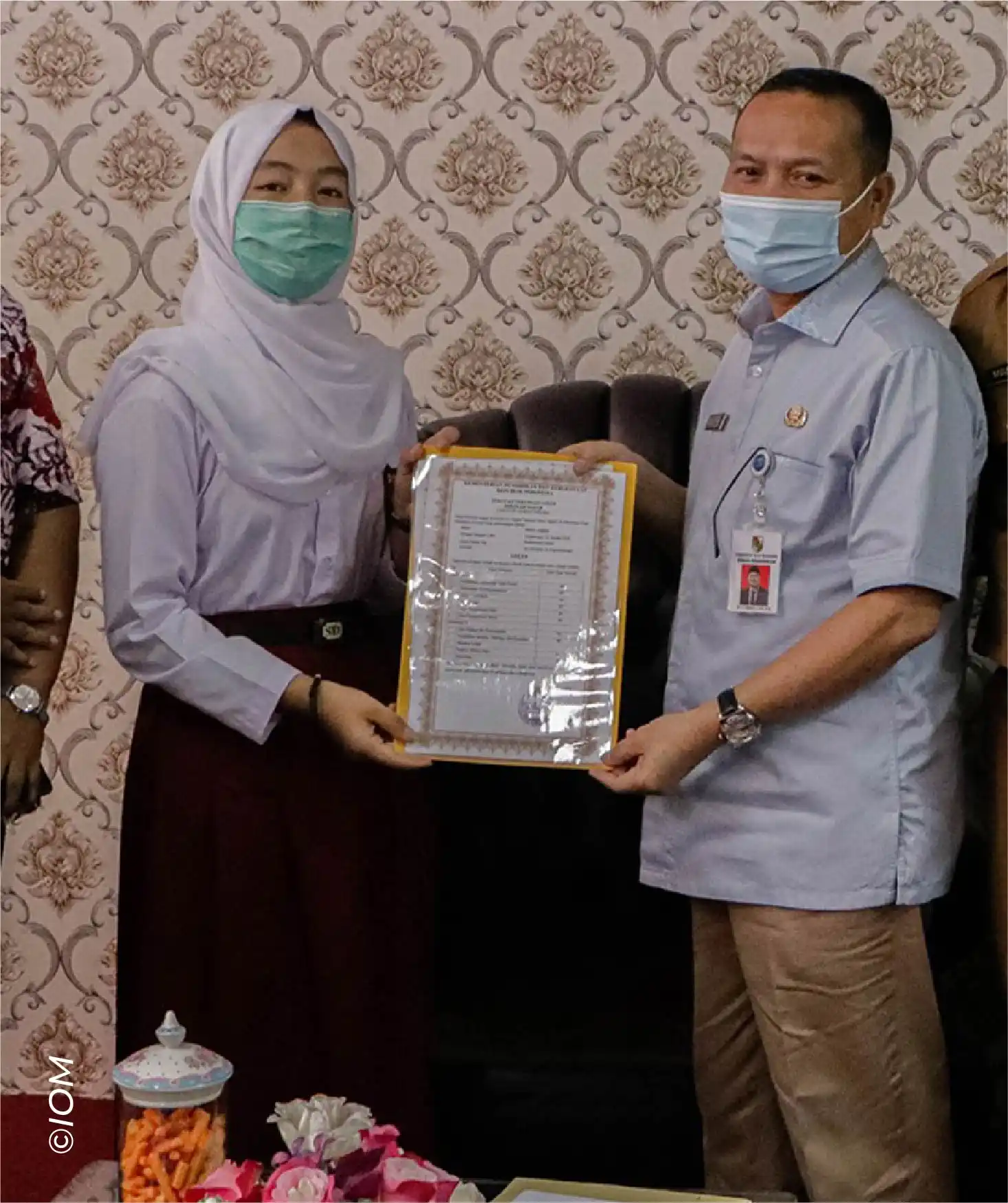United Nations In Indonesia
Country Results Report 2021
Migration and Asylum Policies



 In late 2020, Indonesia became one of 16 country champions of the UN’s Global Compact on Migration (GCM). In accordance with the GCM’s values, the UN continued to advance a whole-of-government and whole-of-society approach to migration in 2021, promoting policies that support Indonesia’s commitment to protecting the rights of migrants.
In late 2020, Indonesia became one of 16 country champions of the UN’s Global Compact on Migration (GCM). In accordance with the GCM’s values, the UN continued to advance a whole-of-government and whole-of-society approach to migration in 2021, promoting policies that support Indonesia’s commitment to protecting the rights of migrants.
Through its Safe and Fair Migration Joint Programme (SAF), for example, the UN collaborated with five women crisis centres to support victims of violence against women and trafficking, including women migrant workers and their families. The programme mobilized community-level stakeholders to prevent and respond to violence against women through improved case monitoring, caseworker training, referrals, and information sharing. Through this intervention, some 5,000 migrant workers and their families—including about 3,000 women—received training and information on recruitment agencies, labour rights, women’s rights, safe migration procedures, and financial literacy. A further 292 migrant workers who had been victims of violence received psychosocial support and referrals to essential services.
The UN also established six village-level task forces in three target districts to support local governments in collecting migration-related data and planning activities on safe and fair migration. These task forces are expected to facilitate local referrals for women migrant workers who have experienced violence and/or been victims of trafficking, in coordination with threevnew Migrant Resource Centers (MRCs) in Cirebon, Lampung Timur, and Blitar Districts. MRCs serve as one-stop shops for the provision of gender-sensitive support services for migrant workers and their families, including information, psychosocial support, and legal aid.
At the policy level, through SAF, the UN helped the Ministry of Manpower develop two standard operating procedures for migrant workers’ protection during the COVID-19 pandemic. Meanwhile, the UN helped provincial governments in West Java, Lampung, Kepulauan, and Riau provinces integrate genderresponsive and victim-centred approaches into local regulations for service provisions on survivors of violence and victims of trafficking. The UN helped also train more than 100 frontline service providers on the gendered aspects of labour migration and women migrant workers’ vulnerability to violence and trafficking. The UN supports the Government’s anti-trafficking task force on prevention, prosecution, and protection issues related to trafficking. With a view to encouraging more accurate portrayals of migration in the media, the UN organised a series of training for members of the national press on reporting on issues related to migration, including trafficking in persons.
On care for refugees, the UN continues to support the full implementation of the Indonesian government’s existing domestic legal and policy framework on the protection of refugees, as well as advocate for the further inclusion of refugees in national policy frameworks. This advocacy accords with the highlevel commitments Indonesia made during the Global Refugee Forum in 2019 on refugee protection and statelessness. The UN also continued to work with national and local governments to improve services for refugees and asylum seekers through its integrated community-based care programme. The programme includes accommodation provisioning, cash-based interventions, and supporting access to health, education, mental health, and psychosocial services for refugees while they await durable solutions, such as resettlement or a return home. The UN also supported information sharing and access to HIV services for the refugee community living in Indonesia.
UN advocacy contributed to the passage of two new policies related to refugees in 2021. In April, the Minister of Communication and Informatics issued a Regulation that allows foreign citizens with refugee status to register for prepaid SIM cards using an ID number issued by the UN’s refugee agency. In September, the Minister of Health issued a Directive that enables refugees to receive COVID-19 vaccinations under Indonesia’s national scheme in areas where 70% of the population has received a first vaccination dose.